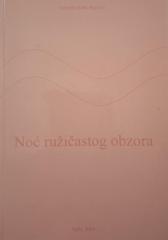
Pogledaj dom svoj, anđele
Pogledaj dom svoj, anđele (1929.) Thomasa Wolfea poluautobiografski je roman koji prati odrastanje Eugenea Ganta (alias Thomasa Wolfea) u Altamontu, izmišljenom gradiću u Sjevernoj Karolini, početkom 20. stoljeća.
Eugene, najmlađi sin obitelji Gant, raste u kaotičnom okruženju. Njegov otac, kamenorezac W.O. Gant, bori se s alkoholizmom i strastvenom naravi, dok majka Eliza vodi pansion, opsjednuta štednjom i nekretninama. Obitelj je razdirana sukobima, a braća i sestre, posebice stariji brat Ben, imaju složene odnose s Eugenom. Roman prati Eugeneov razvoj od djetinjstva do mladosti, njegovo školovanje i buđenje intelektualnih i umjetničkih ambicija. Sveučilište u Chapel Hillu otvara mu svijet književnosti i filozofije, ali i produbljuje osjećaj otuđenosti od obitelji i provincijskog života.
Wolfeov bujni, poetski stil bilježi Eugeneovu unutarnju borbu, čežnju za slobodom i sukob s ograničenjima malograđanskog svijeta. Smrt brata Bena duboko ga pogađa, simbolizirajući gubitak nevinosti i nemogućnost povratka u prošlost. Roman završava Eugenovim odlaskom na studij u Harvard, gdje traži novi početak, ali ostaje proganjan uspomenama na dom.
Naslov, iz Miltonova Lycidasa, odražava nostalgiju i nemogućnost povratka u idealiziranu prošlost. Wolfeov roman, remek-djelo američke književnosti, slavi individualizam i umjetničku strast, ali i prikazuje cijenu odvajanja od korijena.
Jedan primjerak je u ponudi





